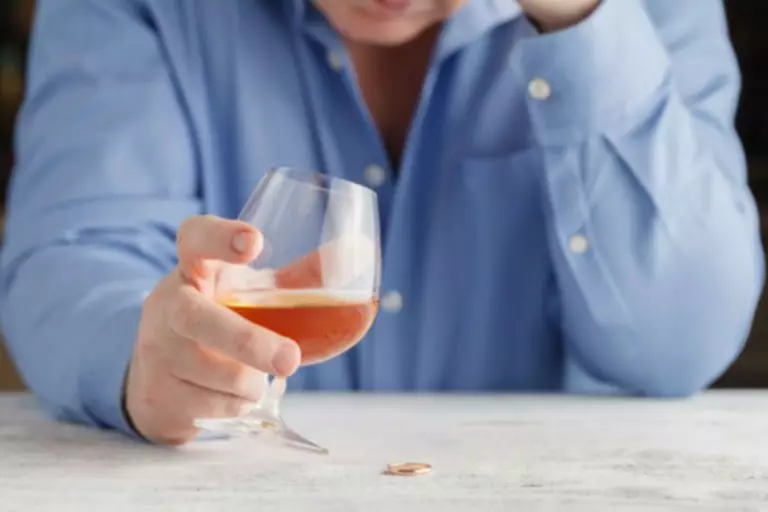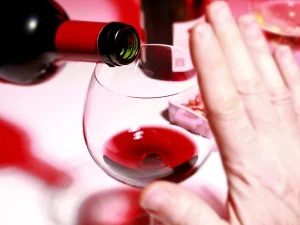
A reimagined TikTok would be a major step toward creating a digital world where people are empowered — and kids are protected. Mason was taken to the hospital where he was pronounced clinically brain dead. He was on life support for three more days while they prepared his body for his organ donation. Our lives have been forever changed, and we miss our son’s generous and caring personality deeply. Wolfgang H. Oertel has received speaker’s honoria on educational symposia sponsored by Abbvie, the International Movement Disorders Society and Stada Pharma. He acts as a consultant for Lario Therapeutics and is a member of advisory boards with Intrabio and MODAG.
Dopamine Alone Doesn’t Cause Addiction
- This is further corroborated by the findings that self‐reported behavioural measures of stimulation, euphoria or drug wanting by alcohol correlates with the magnitude and rate of ventral striatum dopamine release [96–98, 94, 99, 100].
- Following chronic exposure, these interactions in turn cause changes in neuronal function that underlie the development of alcoholism.
- You can speak to your GP, and get advice and help at You can also find further information and advice on our website.
- Interactions between these two brain regions modulate responses to emotional stimuli [108,109,110] and may also underlie motivation for rewards [111].
- Disulfiram administration helps patients learn non-drinking behaviours and the ability to exercise self-control.
The results showed clearly that the cells exposed to vitamin D developed much differently. With adequate vitamin D, changes occurred in the distribution of presynaptic proteins responsible for dopamine release within the cells, which led to enhanced dopamine release. “CYP1A2 is the main enzyme responsible for caffeine clearance that alcohol and dopamine results in ‘fast’ and ‘slow’ metaboliser categories. [A mutation] could be why some people are able to have more than five cups without consequence whereas others can only manage one per day [without side effects]. When you’re in your 20s, you probably wouldn’t give drinking a few glasses of wine or cups of coffee a second thought.
What effects does alcohol have on mental health?
- The impact of alcohol can be observed early on, moderate to heavy drinking during adolescence leads to observable differences to non-drinkers, but this is further confounded by risk factors to unhealthy drinking patterns and alcohol dependence.
- Similarly, in a situation of synaptic transmission blockade, alcohol has been found to increase the firing of dissociated VTA dopamine neurons [76, 77] implying that alcohol activates ventral tegmental dopamine neurons independent of afferent signalling.
- Dopamine is a neuromodulator that is used by neurons in several brain regions involved in motivation and reinforcement, most importantly the nucleus accumbens (NAc).
- Indeed, intra‐NAc infusion of a dopamine D1 receptor antagonist (SCH23390 or ecopipam) decreased alcohol‐mediated behaviours in rats [141, 143].
- In both the dopaminergic SN and cholinergic PPN neurons, the exposure to aggregated alpha-synuclein led to a marked decrease of intraneuronal ATP production and impaired lysosomal function14.
“Medical attention should be sought during prolonged periods of vomiting because that can result in dangerous electrolyte abnormalities and severe dehydration. You should also seek help if there are signs of alcohol poisoning; symptoms include decreased or irregular breathing, decreased heart rate, decreased body temperature, stupor, or seizures,” recommends Dr. Krel. A blood alcohol level of 0.08, the legal limit for drinking, takes around five and a half hours to leave your system. Alcohol will stay in urine for up to 80 hours and in hair follicles for up to three months. Alcohol dependence is characterised by deficits in the physiological dysregulation of motivation and reward systems, such as those in the limbic system, hippocampus, amygdala, caudate nucleus, frontal lobe and nucleus accumbens.
ETIOPATHOGENESIS OF ALCOHOL DEPENDENCE
“Will a person’s dopamine levels stay messed up forever if he or she becomes hooked to alcohol? It is capable of amazing breakthroughs as well as life-changing ideas and deeds. It will then begin to produce less dopamine, decrease the number of dopamine receptors in the body, and increase dopamine transporters, which move excess dopamine between brain cells. Dopamine is one of the brain’s means of communicating some of our most fundamental wants and needs, and it “rewards” people for eating, drinking water, exercising, and having sex as a way to reinforce those behaviors—to keep doing the things that keep life going. When too much dopamine is released, the brain effectively turns off dopamine receptors to regulate the chemical’s flow.

Alcohol and Substance Use Disorders

Moreover, new alleles are also being discovered wherein an association exists between the stated allele and alcoholism. As a reviewer, I would suggest one possible way to overcome much of the conflicting reports would be to perform studies with a much larger sample size. Such efforts are hampered by inadequate funding, so collaborative https://ecosoberhouse.com/ efforts on a national scale, combining the skills and infrastructures of different hospitals and psychiatric care centers could potentially overcome this problem. In addition, one of the latest studies on this pathway found an association between a polymorphism in the promoter of a glutamate receptor subunit gene and alcoholism.
The dopamine system: a potential treatment target for alcohol dependence
On the other hand, local administration of the dopamine D2 receptor antagonist, sulpiride, into the anterior VTA did not alter alcohol nor sucrose intake in high‐alcohol‐preferring rats [142]. It should also be mentioned that accumbal dopamine D1 receptor might regulate alcohol‐induced reward. Indeed, intra‐NAc infusion of a dopamine D1 receptor antagonist (SCH23390 or ecopipam) decreased alcohol‐mediated behaviours in rats [141, 143]. Collectively, these data indicate that the dopamine D2 as well as D1 receptors within the NAc regulate alcohol reinforcement.

The Science of the Sauce: What Happens to Your Brain When You Drink Alcohol?

Some neurotransmitters are monoamines, which are compounds that have only one amine group in the molecule. Examples of neurotransmitters that fall into this category include dopamine, norepinephrine, epinephrine, and serotonin. The chemical also must be released by a specific neuron that is presynaptic and then binds properly to receptors on a postsynaptic neuron.
- Dopamine is an important neurotransmitter involved in reward mechanism in the brain and thereby influences the development and relapse of AD.
- For example, although short-term alcohol consumption may increase GABAA receptor function, prolonged drinking has the opposite effect (Mihic and Harris 1995; Valenzuela and Harris 1997).
- Not everyone with these risk factors develops addiction, and not everyone with an addiction exhibits these risk factors.
- If considered necessary, the dosage was slightly changed during the treatment period of 18–22 months.
We then describe evidence-based treatments you can recommend to patients to help the brain, and the patient as a whole, to recover. Functional connectivity mediation of dopamine depletion effects on (A) attentional bias on the blink task and (B) attentional bias on the reward task. Significant indirect effects indicate the functional connection significantly mediated the effect of beverage type on attentional bias. C is the direct effect without the mediator, and c′ is the effect after entering the mediator. We examined the behavioral evidence for overlapping mechanisms of alcohol and non-drug reward AB by conducting pairwise Spearman’s partial correlations among the three AB tasks, covarying for beverage effects. AB values were residual values from the linear regression analysis with the beverage effect added back; because this calculation provides a separate adjusted value for each trial type, a mean value was calculated to get a single AB score for each session.
How does the brain change as AUD develops?

The accumulation of acetaldehyde is known to cause unpleasant side effects such as vomiting, headaches, and anxiety after the consumption of alcohol. The developing adolescent brain is particularly vulnerable to alcohol-related harm. Alcohol is a powerful reinforcer in adolescents because the brain’s reward system is fully developed while the executive function system is not, and because there is a powerful social aspect to adolescent drinking. Specifically, prefrontal regions involved in executive functions and their connections to other brain regions are not fully developed in adolescents, which may make it harder for them to regulate the motivation to drink.
2. Atypical dopamine D2 receptor antagonists
By Ariane Resnick, CNCAriane Resnick, CNC is a mental health writer, certified nutritionist, and wellness author who advocates for accessibility and inclusivity. In order to avoid getting too much of a good thing, it can be helpful to have boundaries. For example, if you love to exercise but you find yourself getting hurt because you’re overdoing it, set up your workout plan a week ahead of time. Below are some ideas to help you have a healthy relationship with dopamine and help avoid dependence.